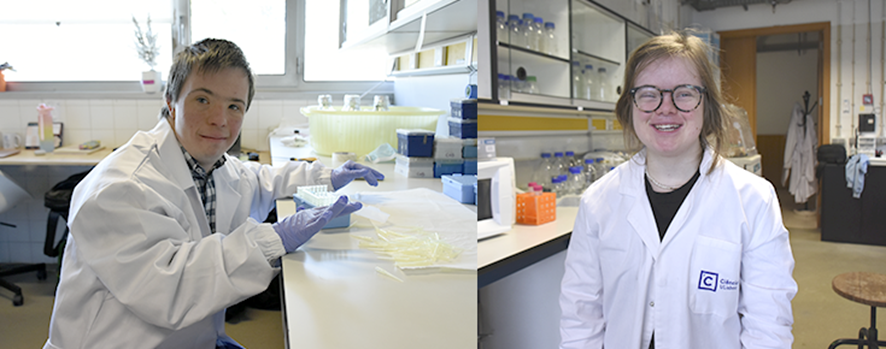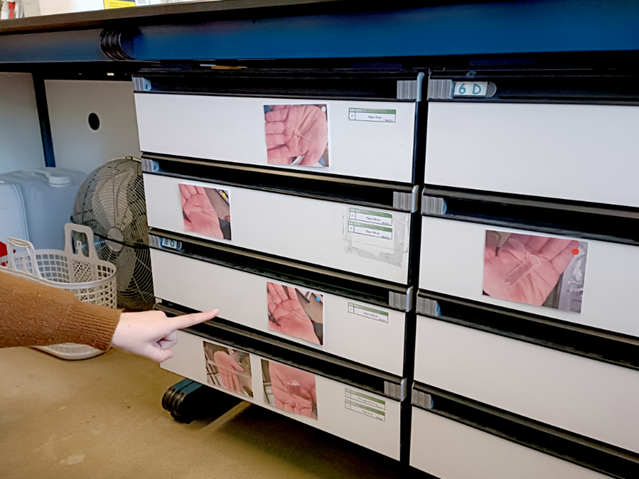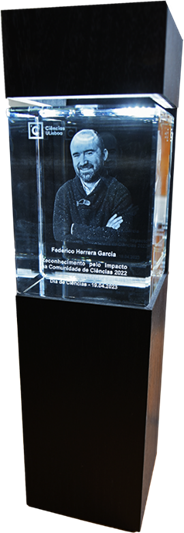As a researcher and trainer, the professor says that his job is to train scientists – “in this case, we continue to do exactly the same thing, but now also with people with trisomy 21, broadening the spectrum of people we are training a little,” he says. As a core element of life in society, work is synonymous with integration, he explains. In this sense, “the idea is to use work as a place of integration, for people with and without disabilities. The laboratory is not just a place to do science, the laboratory is a place of training and integration with a lot of potential”.
Manuela Pereira, professor at DQB and principal investigator at the BioISI Bioenergetics Laboratory, who is also involved in the project, emphasises the importance of Vera's work: ‘A person with Vera's profile could easily be an excellent laboratory technician in various biochemistry laboratories – it's a symbiosis!’
The “Autonomia 21” project, initially embraced by Federico Herrera and later also by Manuela Pereira, allows Ciências ULisboa to act in the pillar of social sustainability, marking a milestone in the relationship between academia and society. It was in this sense that, on 19 April, during Science Day, Professor Federico Herrera was recognised for his impact on the ULisboa Science community.
More information about this project:
Coordinator: Federico Herrera
Project members (FCUL internal): Manuela Pereira and students from the Cellular Structure and Dynamics Laboratory and the Bioenergetics Laboratory
Project members (external to FCUL): Vera Souschek, João Pedro Carvalho, Marcelina Souschek, Rita Avelino, Margarida Cunha and Patricia de Sousa
For more information, please contact sustentabilidade@ciencias.ulisboa.pt.



